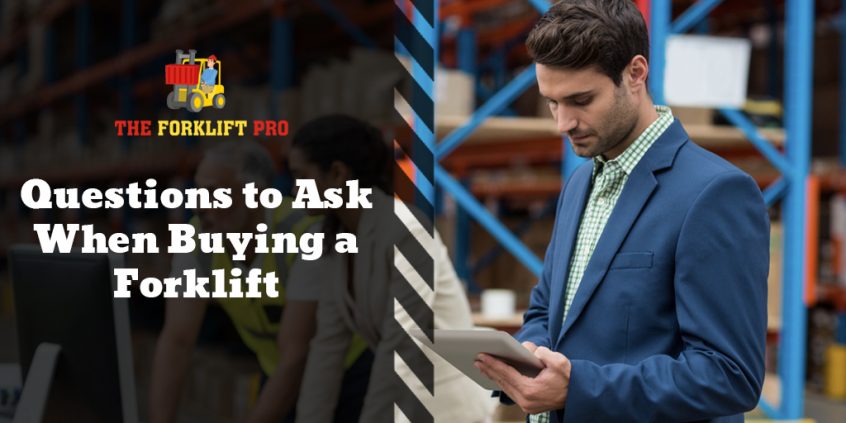If you’ve never purchased a forklift before, then you may be a little lost as to what questions to ask or what to expect. Fortunately, we’re quite the experts when it comes to buying large material handling equipment! As you’re preparing to buy a forklift, make sure you’re asking the right questions.
Depending on your wealth of forklift knowledge, you may be starting from scratch on your search. If this is the case, you probably have a lot of questions. Some of the most common questions people have about forklifts include:
1.Are forklifts gas-powered or electric?
Whether you’re looking for a combustion engine or an electric one, both are an option when buying a forklift! Traditional internal-combustion engine forklifts run on fuel, while electric forklifts are powered by rechargeable batteries.
2. What is a VNA lift?
A VNA (Very Narrow Aisle) lift is designed for warehouses with tall shelves and narrow aisles. VNA lifts are engineered to operate in less than half the width required for a traditional forklift.
3. How are forklifts classified?
To ensure safety and efficiency for every job, forklifts have been given seven different classifications, including electric motor rider trucks, rough terrain forklifts, electric hand-ride trucks. Learn more about forklift classifications.
Answer these questions before purchasing a forklift
Buying a forklift is a large investment. This type of capital should be purchased with careful consideration. When in the market for a forklift, it’s crucial to ask questions and develop an understanding of the product you will be purchasing. As you search for a forklift, determine the answers to these important questions:
1.What kind of environment will the material handling equipment be used?
Determine if the forklift will be used indoors or outdoors. This will decide what type of tires will be needed. For indoor use, cushion tires are best. Pneumatic tires are better for outdoor terrain like asphalt and gravel.
2. How much weight will be lifted and how high?
Every forklift has a maximum weight it can lift. Be sure you know how much weight will be lifted so you can purchase a forklift able to lift as much or more than you need. This applies to height, too. Purchase a forklift that can lift to the maximum height your business requires.
3. How many hours a week will the forklift be used?
The answer to this question will help you answer another important question – new or used? For forklifts that will only be used a few hours each day, used forklifts are a great, cost-effective option.
By answering these questions, you will have a better idea of what type of forklift you will need to purchase. However, you may have a few more questions you want to ask regarding the business aspect of your purchase. If you’ve still got questions or want to consult a specialist, reach out to the experts at The Forklift Pro! We have dedicated professionals ready to help you make the best informed decisions when buying a forklift.

